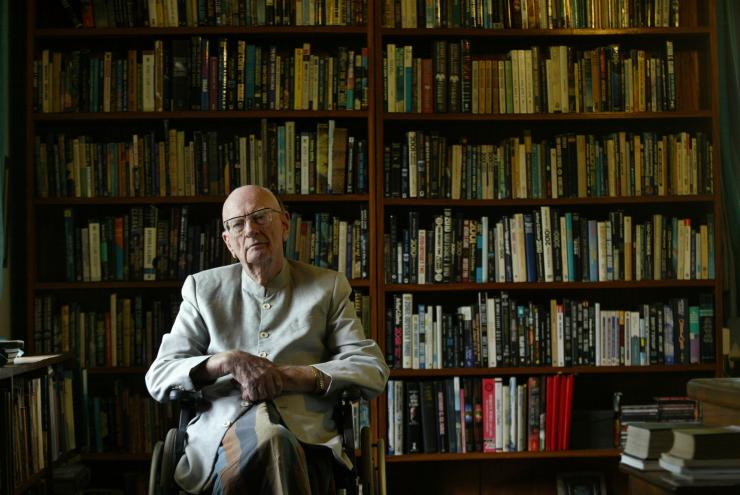
A big part of a science fiction writer's job is thinking about the future. Arthur C. Clarke was very good at his job.
One of the great grandmasters of the genre, Clarke remains a sci-fi titan in the eyes of many readers. He won multiple Hugo and Nebula awards, among many other honors, for works like Rendezvous With Rama and The Fountains of Paradise. Alongside Isaac Asimov and Robert A. Heinlein, he was considered one of the "Big Three" of 20th-century science fiction literature, and together with Stanley Kubrick he created one of the greatest science fiction films ever made: 2001: A Space Odyssey.
But Clarke did more than just make up stories based on futuristic ideas. He was also an acclaimed science writer and futurist who wrote nearly three dozen nonfiction books and countless articles about the future of space travel, undersea exploration and daily life in the 21st century. So in many ways it's not surprising to hear him talk in 1974 about the future of computers and deliver some uncannily accurate predictions.
In a recently released clip from a 1974 ABC News program filmed in Australia, Clarke is shown talking to a reporter next to a massive (and massively loud) bank of computers. The reporter has brought along his son, who will be the same age in 2001 as his father is in 1974. With his son sitting between the two of them, the reporter asks Clarke to talk about what computers will be like when his son is an adult. Here's his eerily, but not surprisingly, spot-on answer.
"The big difference when he grows up, in fact it won't even wait until the year 2001, is that he will have, in his own house, not a computer as big as this, but at least a console through which he can talk to his friendly local computer and get all the information he needs for his everyday life, like his bank statements, his theater reservations, all the information you need in the course of living in a complex modern society," Clarke said. "This will be in a compact form in his own house."
So in just a couple of sentences Clarke laid out not only the compact home computer, but also online banking and, well, Fandango. He also made another observation which, in an age when losing wi-fi signal can make us all freak right the hell out, seems even more prescient.
"He'll take it as much for granted as we take the telephone," Clarke said of the boy and his future computer.
Clarke was then asked about the possible danger of becoming a "computer-dependent" society, and while he acknowledged that in the future humanity would rely on computers "in some ways," computers would also open up the world.
"It'll make it possible for us to live really anywhere we like," Clarke said. "Any businessman, any executive, could live almost anywhere on Earth and still do his business through his device like this. And this is a wonderful thing."
Clarke certainly has a point about computers giving us the ability to communicate from almost anywhere on the globe. Telecommuting is, take it from me, a beautiful thing. As for Clarke downplaying the fear that society would grow too dependent on computers ... well, the jury's still out on that one.
Watch the full clip of Clarke discussing computers below.
(Via Reddit)


